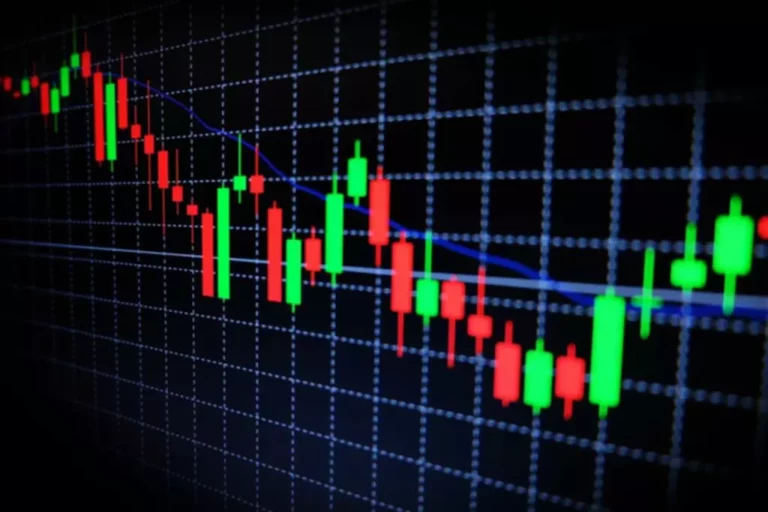The OTC options market is well-liked only when the events are giant institutions the place the popularity acts because the hedge. Also, to justify the cost of structuring OTC options, the ticket size has to be very giant. That is why the OTC options market is restricted to the very massive corporates and institutions only. As even the non-standardised objects could be traded via the over the counter market, it offers the buyers publicity to the securities that are not traded in the usual market. Over the counter trading what is otc does not need to involve buying and selling of simply standardised gadgets and prices are also not always disclosed to the basic public. Learn about hole up and hole down in stocks, together with forms of gaps, buying and selling methods, and the method to use gaps for better trading decisions.
What Is Over-the-counter (otc)? [the Full Information For Investors]
Full-service brokers are stockbrokers who facilitate funding in numerous monetary devices. They provide investment recommendation, suggestions, and assist in managing your portfolio. Full-service brokers cost a payment for his or her service and might also levy brokerage on every transaction done through them. Most full-service brokers are able to supply over-the-counter stocks too to their prospects. You must open a Demat account and a buying and selling account with such brokers to trade in OTC shares.
Debentures: Definition, Features, Types, Advantages & Risks
Securities must adjust to strict itemizing conditions set by the stock trade to get listed, and issuers should meet strict disclosure obligations. Therefore, the application for the listing of securities is a high-cost financing exercise for the issuers, as they need to bear heavy bills and pay varied fees to intermediaries. Stock exchanges impose strict itemizing conditions on securities to be listed and accept only those who meet these circumstances, so comparatively, not as many securities may be exchange-traded. There are a quantity of core differences between the OTC market and formal stock exchanges. Stocks and bonds that trade on the OTC market are typically from smaller companies that don’t meet the requirements to be listed on a serious exchange. The over-the-counter market—commonly often identified as the OTC market—is where securities that aren’t listed on the most important exchanges are traded.
Dangers Hedged Using Otc Derivatives

Both OTC derivatives and exchange-traded futures are monetary devices used for danger administration and hypothesis. They derive their value from an underlying asset and contain contracts between two events. However, OTC derivatives are traded directly between counterparties, while exchange-traded futures are traded on organized exchanges. The over-the-counter market, popularly often recognized as the OTC market, trades securities not listed on the main exchanges. Besides, it is also subject to much fewer laws, thereby bringing liquidity at a premium.This article will present you with informative insights into the fundamentals of the over-the-counter market. OTC derivatives are non-public contracts between counterparties negotiated without inventory exchanges.

Differences Between Change Traded Derivatives And Otc Derivatives
- The Over-the-Counter (OTC) Market operates via a network of sellers who negotiate instantly with each other over laptop networks and by phone.
- The Over-the-Counter (OTC) Market is exemplified by transactions like a small company’s shares traded at ₹50 per share, not listed on main exchanges.
- However, it comes with potential problems as these stocks typically commerce in low volumes.
- OTC (Over-the-Counter) and Exchange refer to 2 different strategies of buying for and promoting securities.
This setup allows Company A to hedge towards interest rate fluctuations that would affect its operations, ensuring more predictable monetary planning. Save taxes with Clear by investing in tax saving mutual funds (ELSS) on-line. Our specialists counsel the best funds and you could get excessive returns by investing instantly or by way of SIP. Download Black by ClearTax App to file returns from your mobile phone. The lack of proper guidelines and regulations makes the over-the-counter market much more unstable and more prone to the dangers.
Counterparty danger arises from the potential default or monetary instability of the parties involved in the contract. Additionally, the complexity of OTC derivatives requires a deep understanding of the underlying property and market dynamics. Proper risk management and due diligence are essential when dealing with OTC derivatives.
Numerous Investment Opportunities
The main benefit of OTC derivatives is their flexibility and customization potential, which allows market individuals to tailor contracts to specific risk administration needs. They also provide privacy and may be cost-effective in comparison with listed derivatives, avoiding trade trading fees and inflexible constructions. Unlike the extremely regulated stock exchanges, the OTC market lacks transparency. This can lead to a scarcity of dependable details about the traded companies, making funding selections more challenging and riskier. OTC markets supply a vital platform for smaller and rising corporations to access capital. They present an avenue for these corporations, which may not meet the stringent listing requirements of larger exchanges, to trade their shares and appeal to investment.
However, exchange-traded options could have mark-to-market margin necessities set by the trade. They’re like secret monetary instruments you should use without having a fancy Wall Street membership. OTC options are merely agreements to buy or sell property immediately with one other celebration, no inventory change concerned. You may be pondering, “How can OTC options benefit me, the everyday investor?
Such low levels of liquidity can make it difficult to purchase or promote massive positions without affecting the worth. Trusted by over 2 Cr+ purchasers, Angel One is one of India’s leadingretail full-service broking homes. We offer a variety of innovativeservices, together with online buying and selling and investing, advisory, margin tradingfacility, algorithmic trading, good orders, etc. Our Super App is apowerhouse of cutting-edge instruments such as basket orders, GTT orders,SmartAPI, advanced charts and others that allow you to navigate capitalmarkets like a pro. However, it comes with potential problems as these stocks generally trade in low volumes.
It’s crucial for both parties to obviously define these terms within the contract to avoid misunderstandings and guarantee a easy settlement process. Additionally, the lack of a centralized clearinghouse means that counterparty danger must be rigorously thought-about in OTC transactions. You can discover OTC commodity options to handle danger or speculate on worth actions. These choices are customizable monetary instruments for commodities like gold, silver, and agricultural merchandise. They supply flexibility in hedging strategies and allow you to tailor danger exposure based on your market outlook.
The OTC market is generally less transparent than the exchange-traded market. This happens as a outcome of there is not any presence of centralised platforms the place market members can entry data relating to trades, volumes, and costs. OTC shares are typically cheaper than stocks listed on the recognised stock exchanges of India. This permits you to buy them in bulk with a small investment amount. The underlying asset, on this case, is a standard rate of interest.
As a outcome, these securities are subject to in depth fraud and pose vital dangers to investors.Another OTC market – the grey market – is sort of hard to entry. Here, the securities aren’t even quoted by the broker-dealers since there isn’t a regulatory compliance and much available monetary info. Certain OTC markets might need limited liquidity and include a considerably low trading volume. Therefore, it turns into quite difficult for traders to buy or sell positions at their fascinating costs.However, you should notice that OTC markets also have potential benefits. Some of probably the most commendable ones include lower transaction costs and greater flexibility. Investors are highly really helpful to turn into conscious of the potential risks earlier than partaking in these markets.
Currently, NSE holds the 12th spot in the ranking of the world’s largest stock exchanges. Shares and securities in India are primarily traded by way of two stock exchanges, i.e., NSE and BSE. We have already seen that trade traded choices are traded through an exchange whereas OTC choices are normally traded between private parties.
We must also notice that exchanges in the OTC market only serve as intermediaries. Generally, they don’t provide supply guarantees for investors, and the credit risk needs to be borne by investors themselves. Lack of regulation in some OCT markets could result in opaque quotes, making it harder for buyers to defend their rights within the occasion of disputes.
Equity and stock are thus used interchangeably for the aim of buying and selling. An equity market is a platform that allows companies to lift capital by way of different buyers. A firm thus issues stocks that investors or merchants buy in expectation of incomes features from future sales of said inventory. Transactions are not publicly reported, in distinction to these on centralized exchanges. This secrecy advantages corporations by permitting them to make giant trades without the market moving towards them, which is crucial for minimizing the price of coming into or exiting positions.
Read more about https://www.xcritical.in/ here.



